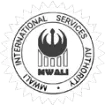- Deposit and Withdraw Funds: Securely manage your trading capital, adding funds when needed and withdrawing profits or unused capital.
- Execute Trades: Access the markets and place trades on your chosen currency pairs.
- Monitor Positions: Keep track of your open positions, including entry prices, stop-loss and take-profit levels, and profit/loss in real-time.
- Analyze Performance: Review your trading history, track your progress, and identify areas for improvement.
- Access Tools and Resources: Utilize the broker's tools and resources, such as charting software, technical indicators, educational materials, and customer support.
Types of Forex Accounts: Choosing the Right Fit
Forex brokers offer a variety of account types to cater to traders with different levels of experience, trading capital, and risk tolerance. Let's delve deeper into each account type:
Demo Account: Your Risk-Free Sandbox
- Virtual Currency: Funded with virtual money, allowing you to practice trading without risking real capital.
- Real Market Simulation: Mirrors live market conditions, providing a realistic trading experience.
- Ideal for Learning: Perfect for beginners to familiarize themselves with the trading platform, test strategies, and build confidence.
- No Time Limits: Most demo accounts have no expiration date, so you can practice as long as you need.
Standard Account: The Mainstream Choice
- Minimum Deposit: Typically requires a minimum deposit, which can range from $100 to $1,000 or more, depending on the broker.
- Full Access: Offers access to all the features and instruments available on the platform, including a wide range of currency pairs, leverage options, and trading tools.
- Suitable for: Most traders, including beginners who are ready to trade with real money and have sufficient capital to meet the minimum deposit requirement.
Mini and Micro Accounts: Smaller Steps into Live Trading
- Reduced Lot Sizes: Mini accounts allow you to trade with smaller lot sizes (usually 10,000 units of the base currency), while micro accounts offer even smaller lots (1,000 units).
- Lower Risk: Ideal for beginners and traders with limited capital who want to minimize risk.
- Similar Features: Typically offer the same features and instruments as standard accounts.
Cent Account: Practice with Real Money, Minimal Risk
- Fractional Lots: Allows you to trade with tiny fractions of a standard lot (0.01 lot), making it very affordable to practice with real money.
- Learning Experience: Offers a valuable learning experience with real market conditions and the psychological impact of trading with real money, but at a much lower risk.
- Limited Features: May have some limitations compared to standard accounts, such as fewer currency pairs or trading tools.
Islamic (Swap-Free) Account: Trading in Accordance with Sharia Law
- No Swap/Rollover Interest: Designed for Muslim traders who follow Sharia law, which prohibits the payment or receipt of interest.
- Similar Features: Typically offers the same features and instruments as standard accounts, but without swap fees.
- Available for: Muslim traders who want to participate in the Forex market while adhering to their religious beliefs.
Additional Account Features to Consider
Beyond the basic account types, Forex brokers often offer additional features and services that can enhance your trading experience:
- Managed Accounts: If you're not confident in your trading abilities or don't have the time to manage your trades, you can opt for a managed account. In this type of account, a professional money manager will make trading decisions on your behalf for a fee.
- VIP Accounts: Some brokers offer VIP accounts to high-volume traders or those with significant deposits. These accounts often come with additional perks, such as lower spreads, dedicated account managers, and exclusive access to research and analysis.
- Social Trading and Copy Trading: Social trading platforms allow you to follow and copy the trades of other successful traders. This can be a great way to learn from experienced traders and potentially profit from their expertise.
- Educational Resources: Many brokers offer educational resources like webinars, tutorials, and articles to help you improve your trading skills. Some even offer personalized coaching or mentorship programs.
- Trading Tools and Signals: Some brokers provide additional trading tools, such as economic calendars, market analysis, and trading signals, to help you make informed trading decisions.
- VPS Hosting: A Virtual Private Server (VPS) can be beneficial for traders who use Expert Advisors (EAs) or other automated trading strategies. It ensures that your EAs run 24/7 without interruption.
Opening a Forex Trading Account: A Step-by-Step Guide
Now that you understand the different types of accounts and additional features, let's walk through the step-by-step process of opening a Forex trading account:
- Choose a Broker: Research and compare different brokers based on their regulation, fees, platform, customer service, educational resources, and account types. Choose a broker that aligns with your needs and preferences.
- Complete the Application: Visit the broker's website and click on the "Open Account" or "Sign Up" button. You'll be asked to fill out an online application form, providing your personal information, contact details, and financial background.
-
Verification Process: To comply with anti-money laundering (AML) and know-your-customer (KYC) regulations, brokers are required to verify your identity and address. This typically involves providing the following documents:
- Proof of Identity: A copy of your passport, driver's license, or national ID card.
- Proof of Address: A recent utility bill, bank statement, or other official document showing your name and address.
The verification process may take a few days, but it's an essential step to ensure the security of your account and comply with regulatory requirements.
- Account Funding: Once your account is verified, you can fund it using the broker's available deposit methods. Choose a method that is convenient, secure, and cost-effective for you.
- Platform Access: After your deposit is processed, you'll gain access to the trading platform. You can then download and install the platform on your computer or mobile device, log in with your credentials, and start trading.
Tips for a Smooth Account Opening Process
- Be Prepared: Gather all the necessary documents (proof of identity and address) before starting the application process.
- Read the Fine Print: Carefully review the broker's terms and conditions, including their fee schedule, withdrawal policies, and any other relevant information.
- Ask for Help: If you have any questions or encounter any issues during the account opening process, don't hesitate to contact the broker's customer support.
The Takeaway
Opening a Forex trading account is a straightforward process, but it's essential to choose the right broker and account type that aligns with your needs and preferences. By understanding the different types of accounts, additional features, and the account opening process, you'll be well-prepared to embark on your Forex trading journey.







